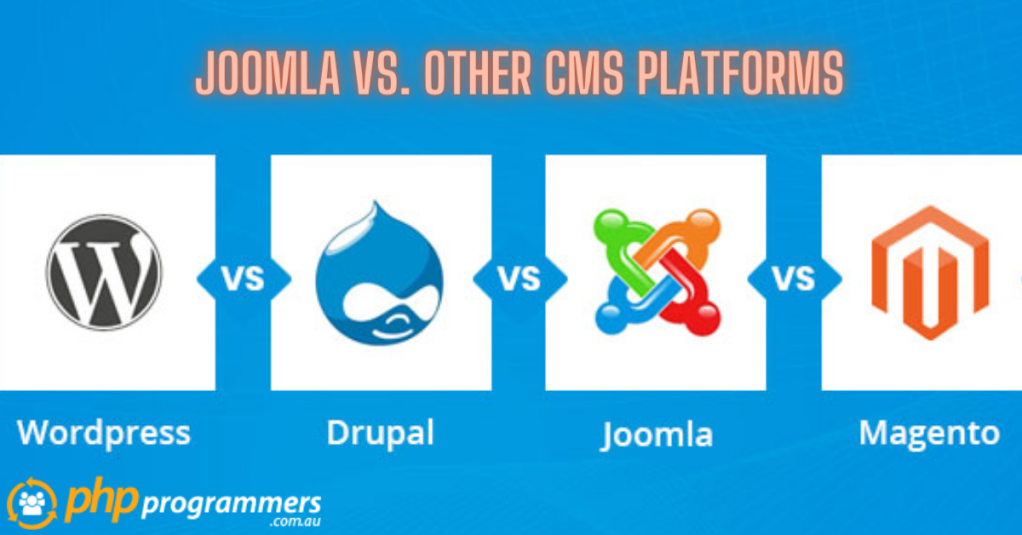In the rapidly evolving world of e-commerce, having a robust and user-friendly online store is essential for business success. With numerous platforms available, choosing the right one for your e-commerce venture can be a daunting task. Joomla, a popular open-source content management system, has emerged as a powerful solution for creating and managing e-commerce websites. In this article, we’ll explore how online store owners can achieve e-commerce success with Joomla and discuss the importance of hiring Joomla developers to ensure a seamless experience.
The Power of Joomla for E-Commerce
Joomla has gained a strong reputation for its flexibility, scalability, and user-friendly interface. When it comes to e-commerce, Joomla offers a range of features that make it an attractive choice for online store owners:
1. Versatile E-Commerce Extensions: Joomla’s extension ecosystem provides a variety of e-commerce extensions that allow you to build a customiSed online store tailored to your specific needs. Popular extensions like VirtueMart and HikaShop offer a wide range of features including product management, inventory control, payment gateways, and shipping options.
2. Responsive Design: In today’s mobile-centric world, responsive design is a must-have for any e-commerce website. Joomla offers numerous responsive templates that ensure your online store looks and functions seamlessly across different devices, enhancing the user experience.
3. SEO-Friendly: Joomla’s built-in SEO features and extensions enable you to optimiSe your online store for search engines. This helps improve your store’s visibility in search results, driving organic traffic and potential customers to your website.
4. Security: Security is paramount in e-commerce. Joomla regularly releases security updates and has a dedicated community that monitors vulnerabilities. By keeping your Joomla installation up to date, you can safeguard your customers’ sensitive information.
5. Community and Support: Joomla boasts a vibrant and active community of developers, designers, and users. If you encounter any issues or need guidance, you can turn to forums, documentation, and community-driven resources for assistance.
Tips for E-Commerce Success with Joomla
1. Plan and Design Thoughtfully: Before diving into the development process, outline your e-commerce goals and user experience expectations. A well-thought-out plan will guide your design and development choices, leading to a user-friendly and functional online store.
2. Choose the Right Extensions: Selecting the appropriate e-commerce extensions is crucial for achieving the desired functionality. Research and choose extensions that align with your business requirements and long-term goals.
3. Optimise for Performance: A slow-loading website can deter potential customers. Optimise your Joomla e-commerce site’s performance by compressing images, using caching techniques, and selecting a reliable hosting provider.
4. Mobile-Friendly Design: Given the prevalence of mobile devices, ensure that your Joomla online store is optimised for mobile users. Responsive design and mobile-friendly features will enhance user engagement and conversions.
5. Streamlined Checkout Process: A complicated and lengthy checkout process can lead to cart abandonment. Keep the checkout process simple and streamlined, requiring minimal steps for customers to complete their purchases.
6. High-Quality Content: In addition to showcasing your products, provide valuable and informative content that resonates with your target audience. Engaging content can build trust, establish your authority, and encourage repeat visits.
The Importance of Hiring Joomla Developers
While Joomla offers a user-friendly interface, building a successful e-commerce website requires expertise in design, development, and optimisation. Hiring experienced Joomla developers can greatly enhance your chances of achieving e-commerce success. Here’s why:
1. Technical Expertise: Joomla developers possess in-depth knowledge of the platform’s features, extensions, and customisation options. They can create a tailored solution that meets your unique e-commerce requirements.
2. Customisation: Off-the-shelf solutions might not fully address your specific needs. Joomla developers can customise your online store’s design, functionality, and user experience to align with your brand and goals.
3. Responsive Design: Crafting a responsive design that works seamlessly across devices requires expertise. Joomla developers can ensure that your e-commerce site looks and functions flawlessly on desktops, tablets, and smartphones.
4. Optimisation: Joomla developers are well-versed in performance optimisation techniques. They can fine-tune your website’s speed and responsiveness, contributing to a positive user experience.
5. Troubleshooting and Support: If issues arise, Joomla developers can quickly diagnose and resolve them. Their expertise minimises downtime and ensures that your online store operates smoothly.
In conclusion, building e-commerce success with Joomla involves leveraging its powerful features, making thoughtful design choices, and optimising for performance and user experience. To achieve these goals, consider hiring Joomla developers who possess the technical skills and experience to create a robust and successful online store. With the right approach and the expertise of Joomla developers, you can establish a competitive online presence and drive your e-commerce venture towards success.



